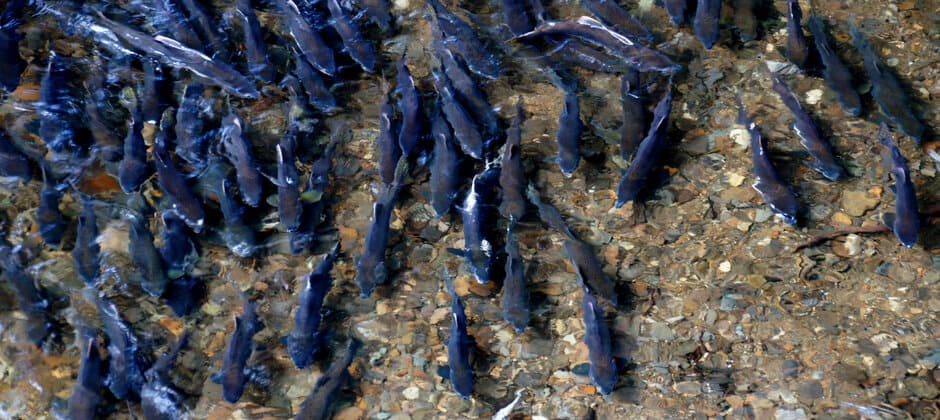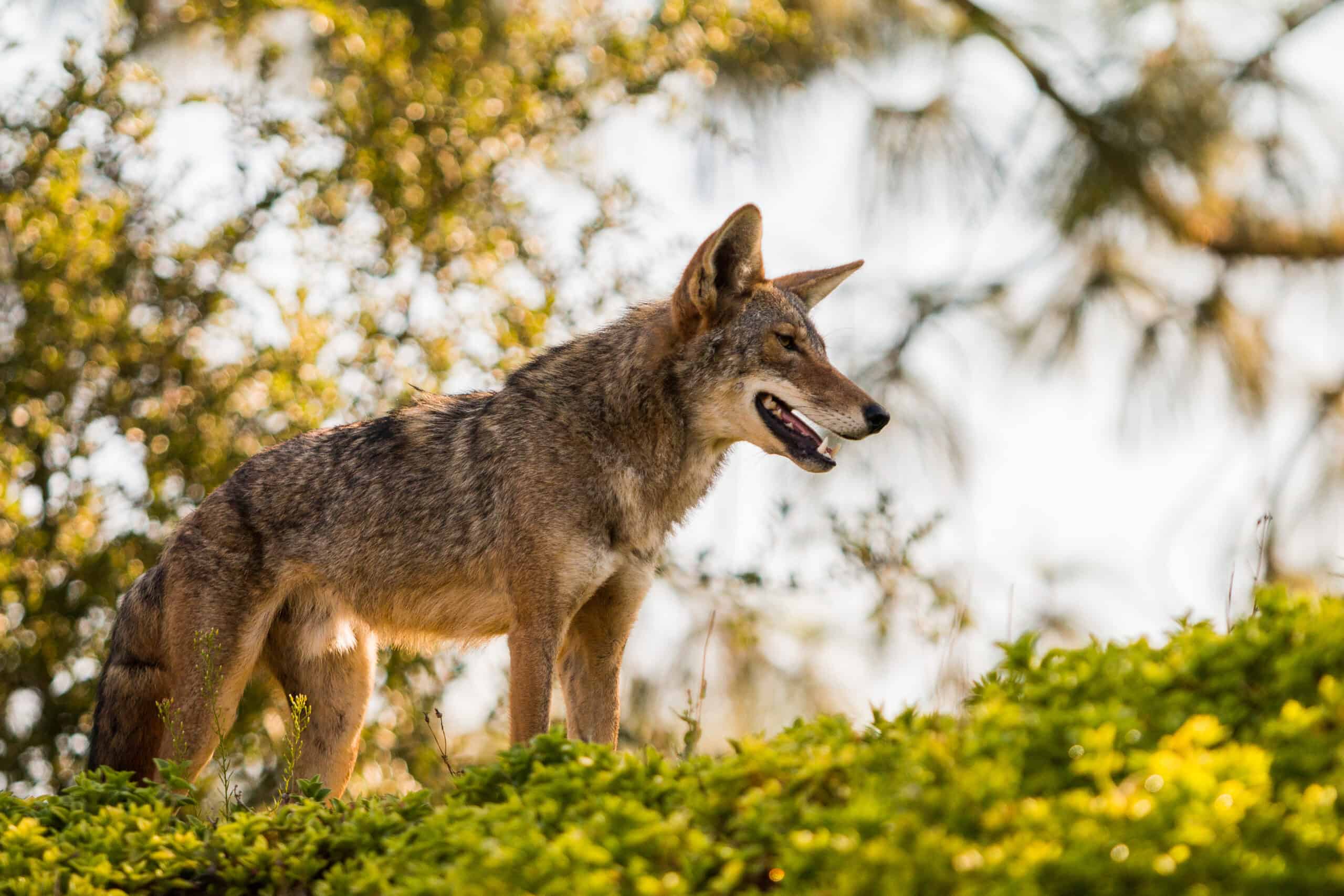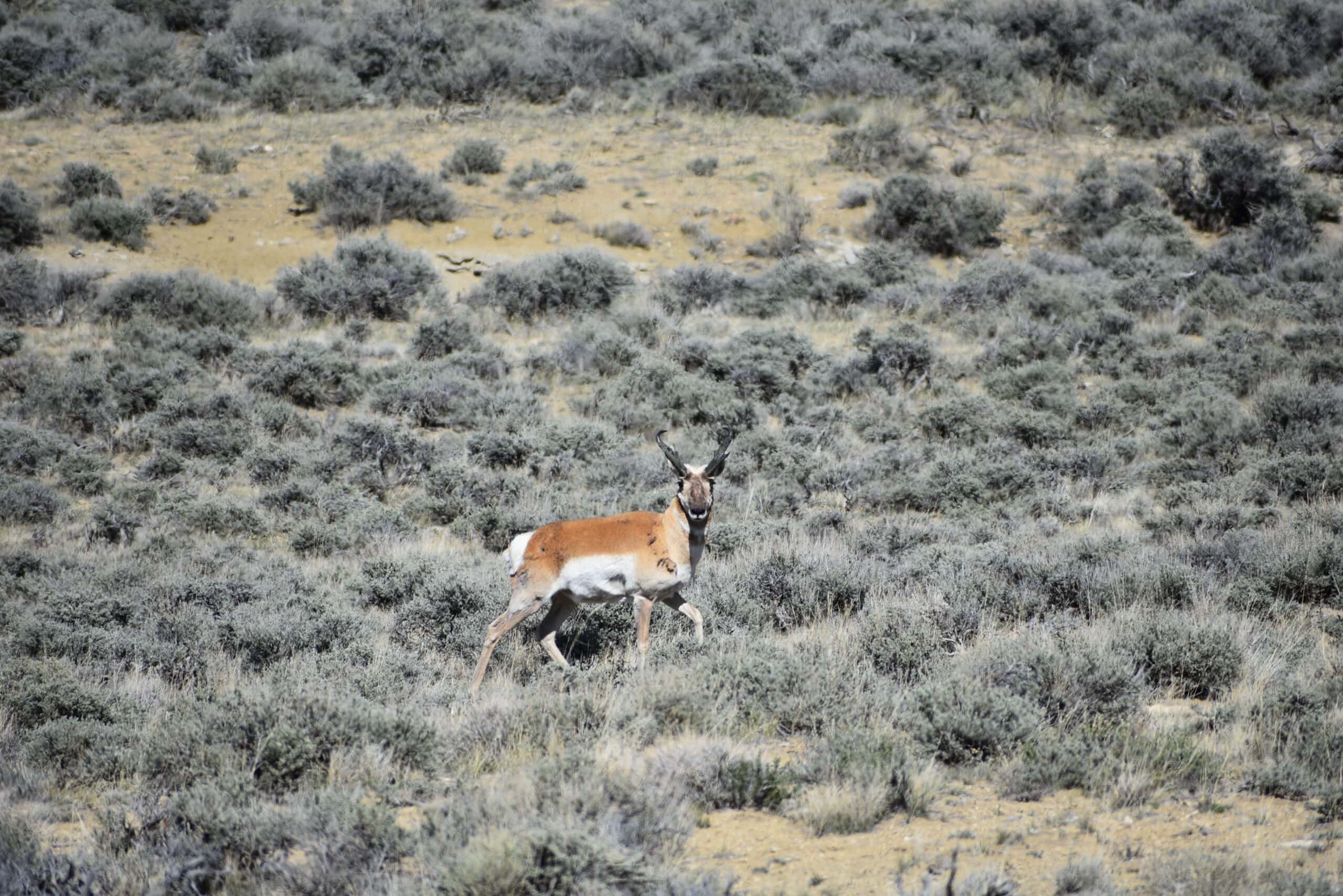Share this article
TWS co-hosts wildlife crisis briefing
The Wildlife Society, American Fisheries Society, National Wildlife Federation, and Native American Fish and Wildlife Society jointly hosted a congressional briefing on the Recovering America’s Wildlife Act.
The briefing, entitled “Wildlife in Crisis,” which took place on Feb. 15, informed legislators and staffers about the need for immediate action to tackle species decline through passage of the Recovering America’s Wildlife Act (H.R. 2773, S. 2372). The bill currently has 157 co-sponsors in the House and 32 co-sponsors in the Senate.
“Our goal was to build congressional support and increase co-sponsorship and awareness of the Recovering America’s Wildlife Act,” said Caroline Murphy, AWB®, government relations manager at The Wildlife Society. “We are at a critical point in the passage of this bill. Advocacy from TWS members has been crucial in the advancement of the legislation, and now more than ever, we need to renew our efforts with members of Congress.”
Rep. Debbie Dingell (D-Mich.) and Sens. Martin Heinrich (D-N.M.) and Roy Blunt (R-Mo.), all champions of the bill, provided briefing participants with statements underlining how bill passage would uphold the cultural, economic and ecological significance of America’s fish and wildlife species.
“[Recovering America’s Wildlife Act] utilizes proven funding mechanisms, boldly addresses pressing conservation needs, and prevents the need for more costly interventions in the future,” Dingell said. She expressed optimism over the future of the bill, and stipulated that to accomplish passage of this landmark legislation, staffers and constituents need to continue their efforts to garner support and co-sponsorship from her colleagues in both chambers of Congress.
After the legislators’ opening remarks, a panel of renowned fish and wildlife professionals highlighted the biodiversity crisis, the need for immediate intervention by both state and tribal professionals, and the efficacy of conservation programs provided with adequate funding. Speakers included Bruce Stein, chief scientist and associate vice president of the National Wildlife Federation; Julie Thorstenson, executive director of the Native America Fish and Wildlife Society; Thomas Eason, assistant deputy director of the Florida Fish and Wildlife Conservation Commission; Mamie Parker, Virginia Department of Wildlife Resources commissioner and former USFWS regional director; and Collin O’Mara, President and CEO of NWF.
“We know that investing in conservation works. The evidence is clear—when we are intentional and strategic about targeted investments, they pay off,” Stein said, pointing to the successful recovery of the California condor (Gymnogyps californianus).
Thorstenson added that for tribal governments, the bill would provide a long overdue dedicated and consistent funding for tribal-led conservation efforts. “For tribes, Recovering [America’s Wildlife Act] isn’t just about an increase to their base funding,” Thorstenson said. “It’s a game-changer in the way they operate, manage, participate and assert self-governance. Nothing has ever offered capacity-building for tribal fish and wildlife programs like “Recovering,” and with these funds, there is no limit to what we can accomplish.”
The Wildlife Society staff, along with partners, will continue to work on increasing support, momentum, and co-sponsorship for the legislation to ensure and expedite its passage.
“As the Recovering America’s Wildlife Act continues to gain traction, it’s important to continue our collaborative efforts to grow co-sponsorship.” said Drue Winters, policy director for the American Fisheries Society and the architect of last week’s briefing. “We had great participation, interest, and engagement from staffers at the briefing, and we need to build on that momentum to get this bill to the finish line.”
Wildlife professionals are encouraged to visit TWS’ Recovering America’s Wildlife Act action center to learn more and urge their U.S. representatives and senators to co-sponsor the bill.
Header Image: Recovering America’s Wildlife Act would provide $1.4 billion annually to U.S. state and tribal agencies for the conservation of at-risk fish and wildlife species. Credit: Bernard Spragg








